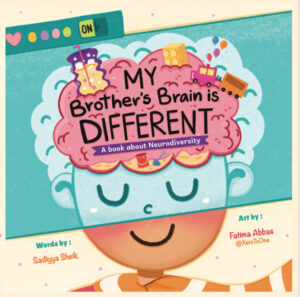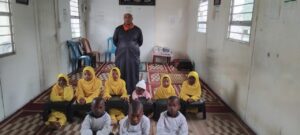Palestinian journalist Faten Elwan recounted the horror of losing her closest friend and media colleague Shireen Abu-Akleh when she was shot and killed by Zionist forces.
When Palestinian journalist Faten Elwan was awoken by her mother with the tragic news that her closest friend and media colleague Shireen Abu-Akleh had been killed by Israeli forces, her life came crashing down.
Speaking to Al-Qalam in an interview, Elwan, a veteran journalist for more than two decades, shared a special relationship with Al Jazeera journalist Abu-Akleh who died shortly after being shot in the head on May 11 when she arrived to cover an Israeli raid at the Jenin Refugee Camp.
During Abu Akleh’s funeral procession in Jerusalem – which took place three days after her assassination – Israeli soldiers shamelessly attacked mourners. Elwan was among those who were injured. She was beaten on the leg while standing near the casket.
She told Al Qalam: “I cannot believe that I had to go home from my friend’s funeral with a leg injury. I have covered the Palestine situation for more than 20 years and I have never experienced something like this. They didn’t even let us say goodbye to our friend in peace. This is not Occupation, it is beyond humanity.”
The international media fraternity has strongly condemned Abu Akleh’s senseless killing.
As for Elwan, it’s a stark reminder that her life as a journalist in Palestine will always be at risk.
“The reality is that I too, could be killed at any minute. Journalists in Palestine have no immunity whatsoever. Even wearing a press vest and a helmet means nothing. There is no protection. I can recall countless times when Israeli soldiers pointed a firearm at me and attacked my cameramen colleagues with pepper spray in their eyes while we were in a live shot,” said Elwan.
She said while Israel might think that Abu Akleh’s killing would scare journalists, they should remember that her death will not be in vain.
“They thought they could prove a point by killing the idol of all journalists in Palestine, but they don’t know that they’ve given rise to a million more Shireens to come. We are now more determined than ever to keep telling the story of Palestine,” said Elwan.
Meanwhile, Palestinian ambassador to South Africa, Hanan Jarrar, said Abu Akleh’s assassination was a culmination of Israel’s 74-year long inhumane Occupation of Palestine, marked by the Nakba (catastrophe) of 1948 which is commemorated annually on May 15 by Palestinians.
“Each year we mark the Nakba as a reminder of the events leading up to the creation of Israel in 1948 – a catastrophe which saw about 800 000 Palestinians being massacred and expelled from their homeland. Hundreds of villages were destroyed and millions of our descendants now live scattered as refugees all over the globe who are denied the right to return to their homeland,” said Jarrar.
Humanity
She questions how many more needed to be killed before the international community acts to hold Israel accountable for its continued crimes against humanity.
She told Al Qalam that Abu Akleh’s killing was a bloody reminder of the deadly system Israel has locked Palestinians in.
“Her death is the latest in a long line of journalists killed by the Israeli Occupation forces which have a long history of targeting reporters and other members of the media, suppressing press freedom. Since 2000, Israeli occupation forces have killed at least 45 journalists who had a common voice of truth and carried out their responsibilities toward the public. All of them were deprived of their right to life for exposing Israel’s cruelty,” said Jarrar.
While the month of May is always sorrowful for Palestine, Jarrar said she looks to the struggles of the many African countries that have achieved independence from their oppressors.
“They have endured the horrors of colonialism and rejected Israel’s occupation of Palestine. We call on them to be standard-bearers in our struggle for self-determination and statehood – and to lead international efforts to end Israel’s colonial Occupation and apartheid regime. We demand accountability for Israel’s crimes. Africa should not associate itself with this brutal colonial project continuing in the 21st century,” said Jarrar.
Dr Imraan Buccus, academic and Al Qalam editor said it seemed like Abu Akleh was an unworthy victim.
“Journalism is never a neutral practice. Every journalist makes moment-to-moment decisions – political decisions about which stories to cover and how. There is a great tradition of radical journalists who, adhering to the highest principles of the craft, have written in the service of emancipation. In South Africa we have superb examples in people like Sol Plaatje, Ruth First and many others,” said Buccus.
He said Abu Akleh was always scrupulous about fact but she did not indulge the liberal pretence of neutrality, let alone being, as most journalists around the world are, a stenographer for the powerful.
“She was an asset for the cause of oppressed people. The mainstream media, in countries like the United States that claim to champion free speech and media freedom, has covered Abu Akleh in a way that has left freedom-loving people around the world saddened and disillusioned. Not even the inhumane and barbaric treatment of her casket received the kind of condemnation one would expect from the media in many developed societies,” said Buccus.
Buccus said the Israeli State likes to claim that it is a democracy encircled by hostile forces, implicitly presented as barbarians at the walls of the city.
“No democracy murders journalists. No democracy shows such disrespect for the dead. No democracy bombs cities. No democracy drives people out of their homes and off their land,” he added.


